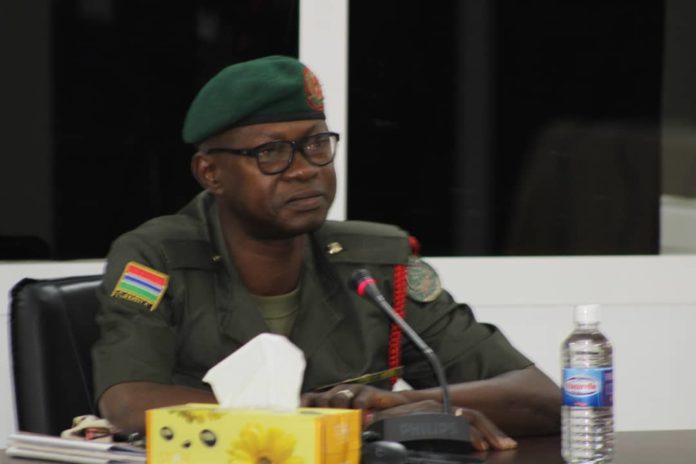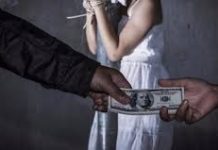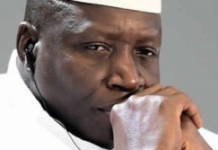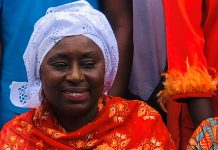By Momodou Jarju
Army Warrant Officer Class 1, Malang F.S. Camara has told the Truth, Reconciliation and Reparations Commission (TRRC) that the soldiers accused of involvement in the 11 November 1994 alleged coup were wrongly handled.
In his testimony, WO1 said they could have been arraigned before a court martial for a trial rather than being killed.
Camara, who joined the army in 1991 and was an operator at the Communication Room, assumed that the Junta Chairman, Yahya Jammeh may have feared the alleged coup plotters because they were productive, close to one other and interacted with the junior soldiers.
He encouraged the TRRC to bring the perpetuators of the human rights violations in the past two decades “to the full force of the law.” He also appealed on President Adama Barrow to seriously look into the country’s security sector because it needs reforms.
YAHYA JAMMEH’S ORDER
WO1 explained that the chairman of the Armed Forces Provisional Ruling Council (AFPRC) and Head of State Yahya Jammeh called to the CR around 9am a day before November 11 and ordered them to kill a list of soldiers (the alleged coup plotters) if they force themselves into the headquarters. The alleged persons were Lt Dot. Faal, Lt. L.F Jammeh, Sergeant Alieu Joof (commonly known as Sir Jakal) Lt. Alieu Bah, Sergeant Bah, Lt. Bakary Manneh (Nyancho), Lt. Binneth Minteh, Lieutenant Basiru Barrow, Sergeant E.M. Ceesay.
According to him, he was in a confused state at the time and found the order unusual.
“Because I was supposed not to take orders from him directly. He should have relayed that message through the commander and that would be filtered down to us but not from the president directly or the head of state to an operator of my level a private soldier at the time,” he explained.
When asked what he meant, he said it’s because he did not know what should have warranted them to do that, adding that the phrase “open fire” was something serious for them to do at that time.
He said he did not think opening fire at the named suspects was the right thing to do but it depends on how they would be coming to the headquarters, whether it’s force or they were armed which they have to defend their position.
Camara said the guard commander was also surprised at the development but went ahead and briefed the soldiers. When he returned to his office in the CR and made phone calls to Fajara Barracks to establish connection with Binneth Minteh who hails from his village to warn him to stay away from whatsoever was about to happen. He said he was worried about his safety; however, he couldn’t get hold of him or anybody.
He said he went outside after 10pm to observe what was going on while smoking cigarette suddenly he had rapid shooting from Faraja Barracks which lasted for quite a while. After that, he said at 3.30am, 2nd Lieutenant Ousman Sonko came in to the CR breathing fast, took his rifle and left for State House without telling him anything.
The following day 11 November 1994 at 8am, he explained that the operator at Yundum Barracks Ebrima Beyai phoned him and told him that the list President Jammeh wanted them to kill were coup plotters.
Camara said Captain Jarra and himself drove to Yundum Barracks under the instruction of Junta Chairman Jammeh and upon arrival at 9am, they found the situation very chaotic and stressful.
He said they saw people being arrested some of them stripped off with only their underpants on their bodies, saying those arrested were being taken to the guard cell which was virtually full. About 20 people, he estimated.
He further said the Junta members were there except Yahya Jammeh with other high rank soldiers including Major Babucarr Badjie etc adding that Sanna Sabally was in charge giving orders like “get him to the cell.”
WO1 said while he was at the CR at Yundum Barracks, he saw a truck packed beside the room. He said he came out to check what was inside the truck and saw two dead bodies of Lt. Basiru Barrow and Lt. Dot Faal. He said Dot. Faal was not completely dead because he could see his body shaking. This was around 11pm.
WO1 also explained the killing of one Fafa Nyang by Lt. Edward Singhateh of the AFPRC for his alleged involvement in the alleged coup plot.
He said Fafa Nyang was brought into the anteroom where Edward Singhateh stood who asked him to go and greet his friends (referring to Basiru Barrow and Dot. Faal in the truck).
“When Fafa Nyang climbed up to see what is in the truck, Edward shot him at the back and he fell down,” he said. He said he was at the signal room when he heard the gunshot and moments later he stood at the door and saw Fafa Nyang’s dead body.
“You could even see his intestine outside where he was laid,” he said and at this juncture, he could not hold his emotion as he could be seen crying. The hearing was stopped for some time before it resumed.
Upon resumption, he was told that one Lamin Colley was also involved in the shooting of Fafa Nyang.
Earlier on, WO1 also revealed that one EM Ceesay was also killed by the soldiers ordered by Edward Singhateh when he asked the soldiers who did the shooting. Then he said he went to the vehicle and he came with Captain Jarra and hid his rifle because he did not want to be used.
He also said some soldiers were transported to Sifo Forest and Nyambai Forest for execution by Sana Sabally, Yankuba Touray, Saddibou Hydara, and Edward Singhateh, a situation that left him sleepless for 48 hours. He estimated that about 1o people were killed at the Yundum Barracks, Sifo forest and Nyambia forest all together.
John Charles B. Mendy Explains The Role He Played
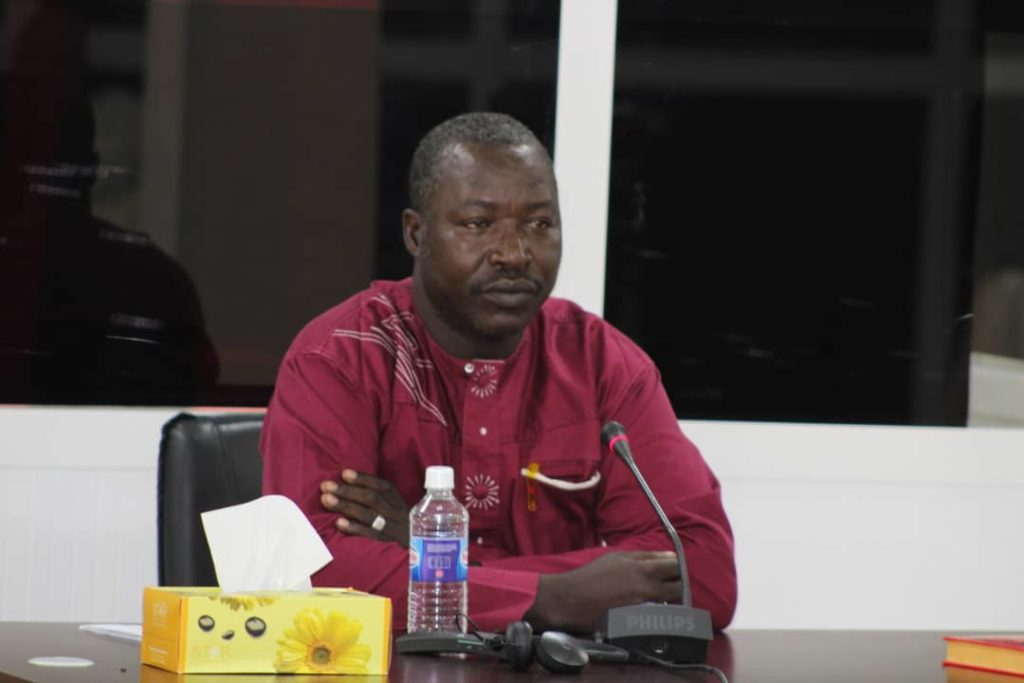
A private ex-soldier who admitted to have participated in the 22 July 1994 coup yesterday explained the role he play to the truth commission (TRRC).
John Charles B. Mendy, who was also a personal guard to Sanna Sabally at the time, said he was born in 1972 and enlisted to the army in 1991 upon completing senior school.
He said at that time soldiers would be grumbling that they were neglected but he never heard soldiers planning to overthrow former president Dawda Jawara until on the 21 July1994.
Mendy said he was on duty at the army headquarters in Banjul, when he heard that some soldiers were disarmed at the airport and let to go.
He said Sanna Sabally and Edward Singhateh initiated the 1994 coup who later invited Saddibou Hydara, Yankuba Touray and Yahya Jammeh.
Asked how he came to know about this by lead counsel Essa M Faal, he said “It was a chat between me and Sanna after the takeover.”
The following day of the coup, he said he was in Banjul when he learnt that the coup was still going on, so he left his office, got home, dressed up in uniform and joined the coup plotters.
“I went straight to Yundum Barracks,” he said which was around 11am to 1pm and there Mendy said he took his weapon, jumped onto a vehicle they seized from anyone along the highway with some soldiers and headed to Banjul.
He said the vehicle that they jumped in was driven by the owner.
He said when they reached Sting Corner, they met Yahya Jammeh with some soldiers heading to Denton Bridge on foot, so they alighted from the vehicle while the driver drove back.
He said Yahya Jammeh was the leader at the time and he did not see Edward Singhateh neither Sanna Sabally but he couldn’t tell the entire soldiers.
Upon arrival at Denton Bridge, “we met Suwareh who knew Yahya Jammeh, blocking the bridge”. He said Jammeh and Suwareh went on talking aside for about 20 to 30 minutes before they were allowed entry. Mendy said as they moved towards Banjul, the number kept increasing.
“When we reached Mile 2 we were informed that some prisoners were trying for them to be released to join us but Yahya told them no you cannot be released… {that’s} where I met Ceesay the former director of NSS and some senior officers of the prison department… and some of them their weapons were confiscated by Yahya Jammeh and then he hand them to me. I was handling them,” he explained.
He said when they reached Bund Road, they heard shots and he later got to know that Ebrima Chongan ordered those shots at them. Mendy said they all scattered moving in bounce (a tactical maneuver) until they reached the State House.
Upon arrival at the gate of State House, he said the gatekeepers told them that Dawda Jawara had left. Then they got in, he said for him, he spent four hours before he left and later had a government had been formed.
He added, “Before that there was a pull and push {between} Yahya Jammeh, Sanna Sabally, Edward Singhateh and Saddibou Hydara,” as to “who is going to be the leader.”
He said they resolved the matter through military terms which was seniority and Yahya Jammeh was chosen to lead who denied at first because he was not the initiator of the coup.
Mendy has also admitted that Sanna Sabally’s escort had tortured people who have blocked his convoy or did not vacate the road fast enough for him to pass. He has also admitted taking part in torturing of one Dola Bah at Sanna Sabally’s office.
He said Dola Bah was allegedly tortured for insulting the former chairman of Armed Forces Provisional Ruling Council President Yahya Jammeh. According to Mendy, Dola Bah was subjected to military punishment and that he was forced to crawl by the soldiers.
Mendy continues his testimony today…















